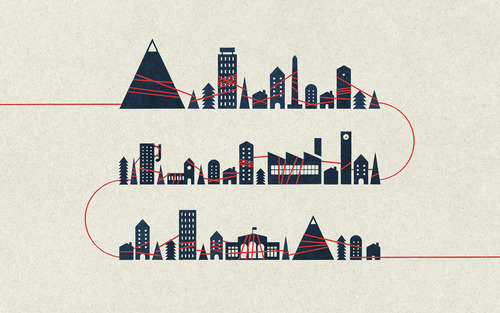An understanding of people, not just technology is the key to unlocking the value of ‘The Connected World’

(Fantastic) illustration by Jez Burrows
As we know, we are living in an ever more connected world where increasingly malleable and portable content and smart devices are causing consumers to demand more connected solutions. But who will help consumers to navigate this landscape? Will Google make IPTV a mass market proposition or will the cable providers get their act together before it’s too late? Does Apple have the mobile internet sewn up via self-contained apps or will Google’s browser-based apps prevail? The big question being asked in the boardrooms of CE manufacturers, content distributors, broadband and airtime providers and technology and entertainment retailers (and I have been party to a few) is how to leverage these trends in order to sell lucrative eco-systems of devices, connections, services and content and reap the consequent revenue and margin benefits.
But currently progress is slow as everyone searches for a ‘silver bullet’, a single value proposition which will explain the connected world to consumers and help them to understand its potential in order to unlock their spending.
This is the wrong approach because it supposes that ‘the connected world’ is something that can be neatly categorized and packaged when in fact it’s a multi-layered collection of technology, devices and applications: a complex eco-system which is radically changing almost every part of our lives. This complexity will be its key strength: the connected world’s ability to provide a million different benefits to a million different people will drive uptake. But this also makes summing up what it does in a single statement that everyone can understand and find compelling impossible.
The PC-accessed internet wasn’t popularized by an all-encompassing proposition which someone defined and suddenly everyone understood. It was a messy grass-roots phenomenon: the cumulative effect of millions of people finding solutions to individual needs using online tools (communicating via email and IM, learning via educational resources online, shopping via internet stores etc.)
So rather than spending our time naval-gazing and agonizing over the set of words which will unlock the potential of the connected world, we need to take a consumer-focused approach in order to show individuals how it can address their specific needs and sell the products and services required to make this happen.
The key is to present the connected world as a means to an end as opposed to an end in itself. Fundamentally, it is a tool that can help people get more from life (whether they want to work smarter, connect with their networks, engage more with their favourite TV shows or sports teams, better research their school project etc etc). Fundamentally, the key to unlocking the value of the connected world is less about understanding every possible permutation delivered the technology and more about understanding what consumers want from life.
4 notes
ideamagpie-blog posted this
